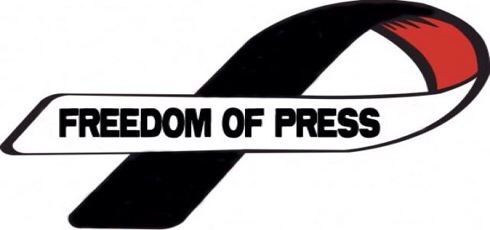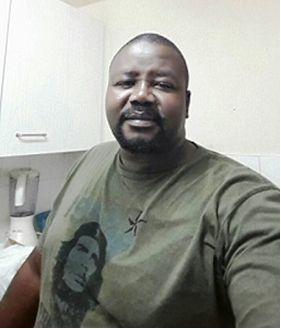News media and the public
The mass media today has evolved to including the Internet, that has been creating impact on the public negatively as well as positively. The social networking of the internet has been very instrumental in making and breaking of leaders. President Obama was one fortunate leader who got into into power by great help from the Internet, whilst Egypt’s Hosni Bubarak, Libya’s Ghadaffi were unfortunate to lose their grip on power through the Internet.
In Sierra Leone, we are gradually reaching that point where social networking sites will become very important in deciding our leadership or how long they will stay in power if they fail to perform. And I’m pretty sure that come next year’s elections social networking will have some effect on it.
Mass media is a very powerful concept, with the ability to sway the opinion of a large part of the population in any country especially in Sierra Leone. With this in mind, it is important to note that politicians in Sierra Leone are watching the stories in the newspapers, radio and television with keen interest as most of these stories are reporting the change in public opinion of the government (positive as well as negative) very carefully in order to choose their platforms and plans for action.
In political behavior, opinion leading tends to correlate positively with status, but is not the case for consumer behavior. So in political behavior, the general consensus that the media fixes people’s opinion is not correct. It has always been the case that effects of information on longer term behavior and attitudes, in areas where people have little experience like politics and have a high degree of trust in the source like newspapers and radio.
Since class has become a less viable indicator of party politics, the floating voter today is no longer the apathetic voter, but likely to be more informed than the consistent voter and this is mainly through the media.
The media helps to maximize the amount of voters who will agree with their policies or not. The campaigning candidates will be concerned with reigning in the power of major interest groups which lobby for their respective causes. The relationships between all of these things: public opinion, mass media, interest groups and politicians are inextricable.
Mass media controls what news makes the airwaves, be it digitally through the Internet or through more traditional channels such as newspapers and television. The media chooses what stories to cover and to what extremity to stretch them. This drastically shapes the way people think about issues.
There is also some very persuasive and empirical evidence suggesting that it is personal contact, not media persuasiveness which counts. In the past presidential election, it was based on the theory of the two-step flow of communication. This examined the political propaganda prevalent in the media at the time during the campaign period to see whether it plays an integral role in influencing people’s voting. In terms of generalizing their results, we should note that there are questions about short term versus long term influence.
By controlling what people see and read, the media can decide what issues become crucial and what issues are largely ignored. In this way, mass media can shape public opinion and also the agenda of politicians and their parties. Politicians are always concerned with mass media, as they understand this institution’s power over public opinion and along what lines people will vote.
We saw the media in action in the last elections where the musicians joined the fray and the message was received all over the country and beyond. The trend is continuing now as the media has been divided between the ruling party and the opposition. The earlier they listen to the media the better it is for them.
Public opinion is a fickle thing, and can change at the drop of a hat. This erratic concept is influenced by many things, especially mass media. Polls taken concerning issues that get heavy media coverage are subject to changing along the lines of the light in which they are portrayed in the media. The level of scrutiny on an individual issue is important in weighing the influence of the mass media on the opinion of the common people.
Interest groups shape policy by working with politicians towards their own goals. Some of the strongest lobbying groups are amalgams of people rather than representatives of big business. Groups for example such as the Action Aid and National Democratic Initiative represent the interests of large bodies of people. While powerful lobbies still exist which represent big business, it is my opinion that these people-oriented groups carry much more weight with politicians in state and national governments.
Most of these interest groups hold the power to alter public opinion. If these groups hold that one candidate will suit them better than another, and show their support accordingly, that candidate will receive a boost in support from people of like-minded backgrounds of the interest group’s supporters.
As you can see, all of these things are entwined, with some influence over each other in some form or another. Interest groups pressure the media to cover what they wish, while public opinion also shapes what the media will focus on. Large special interest groups hold a sway over public opinion large enough to concern policymakers into dealing with them.
The Bo incident saw that exposed the police; most of these interest groups were up in arms to criticize the police and even went further to blame the government of allowing such to happen. Comparisons were made between the former government and the present on the behavior of the police which eventually had a negative effect in the present government.
By opening themselves up to being lobbied and ridiculed, politicians and lawmakers are allowing the interest groups to change the agenda, just as they allow public opinion to change the same agenda. In the end, all of these things have their own specific type of influence over what politicians consider for their agenda.
The problems with allowing the media to influence public policy agenda is simply that the media, in order to fight for viewers and readers, has a need to sensationalize stories and issues to suit their own personal business interests. Because of exaggeration on the part of the media, some issues end up distorted and misguided. With this in mind, it is still important to remember that without the media, the majority of people would never have any idea what is going on in government, even on a local level.
As I mentioned earlier, public opinion is a fickle part of government. The opinions of the masses change frequently often without warning. It is hard to rely on public opinion for policy decisions, as their opinion is so easily swayed by the mass media and outside sources. To call it brainwashing would be conspiratorial, but it is something near to that.
Many people trust the media and take what they hear as gospel truth, not to be questioned. “If it’s on BBC and some particular newspapers, it must be true,” this is a simpleton attitude but in reality a very real one. All of these policy influencing parts of society are important cogs in the governmental machine. They carry on their own form of a system of checks and balances by holding sway over each other at different times.
Interest groups are just that, groups interested in a single issue or a single group of issues. This can be dangerous, because politicians can become too concerned with the particulars of the issue being lobbied, and issues just as important slip by under the radar. Powerful lobbying groups are concerned only with their own agenda and seeing it implemented in the agenda and policy of policymakers.
The media is influenced by the interest groups as well as by public opinion. The interest groups are influenced by the opinion of their supporters that is the public. And finally, the public are influenced heavily by the mass media as well as by the interest groups.
With all this in mind, it is important to understand that no part of the policy-making machine is infallible and sometimes self-interested parties get over on what is in the general public’s best interest.
Austin Thomas, China
Stay with Sierra Express Media, for your trusted place in news!
© 2011, https:. All rights reserved.





